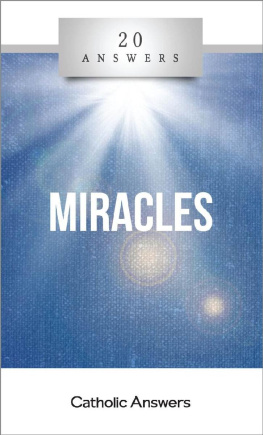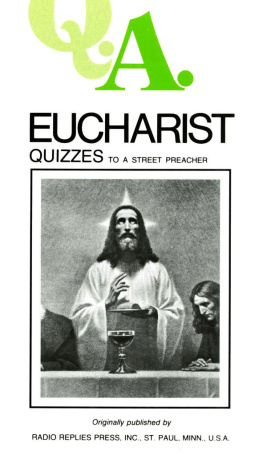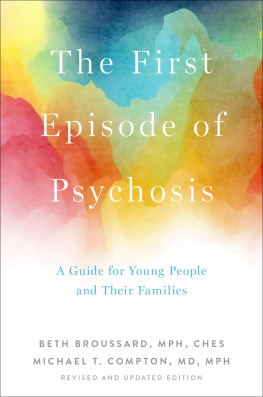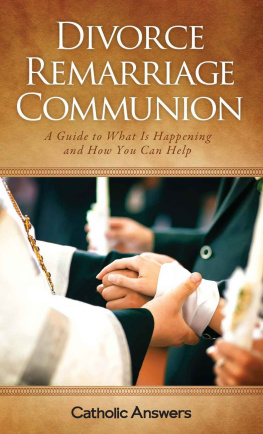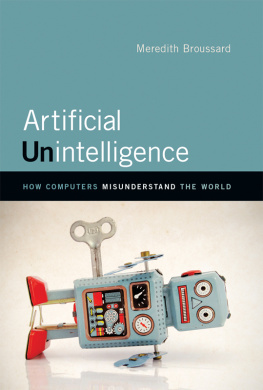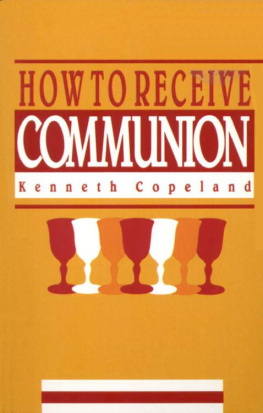Karlo Broussard - 20 Answers: The Communion of Saints
Here you can read online Karlo Broussard - 20 Answers: The Communion of Saints full text of the book (entire story) in english for free. Download pdf and epub, get meaning, cover and reviews about this ebook. year: 2021, publisher: Catholic Answers Press, genre: Religion. Description of the work, (preface) as well as reviews are available. Best literature library LitArk.com created for fans of good reading and offers a wide selection of genres:
Romance novel
Science fiction
Adventure
Detective
Science
History
Home and family
Prose
Art
Politics
Computer
Non-fiction
Religion
Business
Children
Humor
Choose a favorite category and find really read worthwhile books. Enjoy immersion in the world of imagination, feel the emotions of the characters or learn something new for yourself, make an fascinating discovery.

- Book:20 Answers: The Communion of Saints
- Author:
- Publisher:Catholic Answers Press
- Genre:
- Year:2021
- Rating:3 / 5
- Favourites:Add to favourites
- Your mark:
- 60
- 1
- 2
- 3
- 4
- 5
20 Answers: The Communion of Saints: summary, description and annotation
We offer to read an annotation, description, summary or preface (depends on what the author of the book "20 Answers: The Communion of Saints" wrote himself). If you haven't found the necessary information about the book — write in the comments, we will try to find it.
20 Answers: The Communion of Saints — read online for free the complete book (whole text) full work
Below is the text of the book, divided by pages. System saving the place of the last page read, allows you to conveniently read the book "20 Answers: The Communion of Saints" online for free, without having to search again every time where you left off. Put a bookmark, and you can go to the page where you finished reading at any time.
Font size:
Interval:
Bookmark:
20 Answers
g
The Communion of Saints
Karlo Broussard

20 Answers: The Communion of Saints
Karlo Broussard
2021 Catholic Answers
All rights reserved. Except for quotations, no part of this book may be reproduced or transmitted in any form or by any means, electronic or mechanical, including photocopying, recording, uploading to the internet, or by any information storage and retrieval system, without written permission from the publisher.
Published by Catholic Answers, Inc.
2020 Gillespie Way
El Cajon, California 92020
1-888-291-8000 orders
619-387-0042 fax
catholic.com
Printed in the United States of America
978-1-68357-236-7
978-1-68357-237-4 Kindle
978-1-68357-238-1 ePub
Introduction
After the doctrines surrounding the Virgin Mary, the Catholic doctrine of the intercession of the saints may elicit more challenges from Protestants than any other topic. These tend to be of two types.
Some challenges are based on the idea that its not appropriate for Christians to request that the saints pray for them: either it takes away from the uniqueness of Jesus mediation or God outright forbids it as an abominable practice (Deut. 18:12). Other challenges are more practical: some Protestants may think that, in principle, requesting that the saints pray for us could be appropriate, but its just futile to do so because the souls in heaven arent able to intercede for us.
The Churchs take on the saints can be challenging for Catholics as well. Veteran Catholics might want to know things like Can a saint ever stop being a saint? or Are there non-Catholic saints? Recent converts to Catholicism sometimes are uncomfortable with the practice of having a devotion to the saints, so they want to know exactly what is required of them with regard to having devotions to the saints and whether they must accept everything a saint writes. Converts who are okay with the practice often want to know how to have a devotion to the saints.
Its important that we recognize the particular Protestant challenges to Catholic doctrine regarding the saints. In our conversations, if we know what the obstacle is, we can focus our time and attention on making an effective answer.
The motivation behind these challenges can be understandable. We dont want to do anything that contradicts the Bible or takes away from Jesus. Nor do we want to engage in pointless attempts at piety. But as we meet these challenges, well see that these motivations are simply mistaken when it comes to our Catholic beliefs about the saints and their intercession. These beliefs are scriptural, and they give great honor to Jesus and his saving work.
Its important that we have adequate answers to queries from Catholics as well. Catholics need to know the truth about the saints, and all Catholics have been called by Christ to experience the graces that can flow from having healthy relationships with those fellow Christians who are perfected in him. They are our brothers and sisters. Together, we are the household of God (1 Tim. 3:15). I pray that this booklet will help you enjoy more fully the blessings of this great family.
1.Doesnt the Bible say all Christians are saints?
Christians on earth are saints (2 Cor. 1:1; Eph. 1:1; Phil.1:1; Col. 1:2; Rev. 5:8).
The Israelites are holy (Lev. 20:26) and, therefore, are called saints (Ps. 34:9; Dan. 7:18, 8:24).
Angels are called holy ones (Ps. 89:6; Dan. 4:13, 17, 23, 8:13).
A person is called holy or saint (Isa. 4:34; Matt. 27:5253).
Jesus is the Holy One of God (Mark 1:24; Luke 4:34; John 6:6769).
God is the Holy One of Israel (Ps. 71:22, 78:41, 89:18; Isa. 1:4; Jer. 50:29).
The Catholic Church uses the term saint in a few different ways, all of which have to do with those united to Christ. As the Catechism of the Catholic Church (CCC) explains it, the most familiar use is with regard to those Christians who have preceded us into the kingdom [of heaven] and have their virtues publicly recognized and proclaimed when they are canonized as saints (2683).
But the Church also extends application of the term saint to every soul united to Christ in baptism, which includes Christians on earth, souls in purgatory, and those souls in heaven who havent been canonized. The Catechism explains (emphasis added):
In the communion of saints , a perennial link of charity exists between the faithful who have already reached their heavenly home, those who are expiating their sins in purgatory and those who are still pilgrims on earth. Between them there is, too, an abundant exchange of all good things (1475).
The Catechism elsewhere states:
After confessing the holy Catholic Church, the Apostles Creed adds the communion of saints. In a certain sense this article is a further explanation of the preceding: What is the Church if not the assembly of all the saints? The communion of saints is the Church.... The term communion of saints therefore has two closely linked meanings: communion in holy things ( sancta ) and among holy persons ( sancti ) (948).
Since saint means holy one, and since all baptized Christians are holy persons ( sancti ), set apart unto the Lord, it follows that all baptized Christianswhether on this side of the veil or the otherare saints.
Now, its true that Catholics dont go around calling each other Saint So-and-So. The Church typically uses the term in a narrower and more formal way for those individual Christians who are perfected in the heavenly kingdom. Why is that?
Since the blessed in heaven are perfected in righteousness, they are saints in the fullest sense of the term. They are completely holy, perfected by God and separated unto him. Unlike us, their saintliness is not mixed with sin and disordered inclinations. Our saintly status is a share in part of the saintly status of those in heaven. This seems to be how St. Paul describes it in Colossians 1:12: Giving thanks to the Father, who has qualified us to share in the inheritance of the saints in light.
The Greek word for share in this verse is meris , which literally means part or portion. It can mean to take part in the same amount, but it can also mean to take part in partially, as opposed to possessing in full. For example, Paul writes in 2 Corinthians 1:1314, I hope you will understand fully, as you have understood in part [Gk. merous ], that you can be proud of us as we can be of you, on the day of the Lord Jesus.
Just as here on earth, we know only in part but will know in full at the end of time, so too we share in part in the inheritance of the saints who dwell in heaven. Because of this difference and the unique status that the saints in light have, its fitting that Catholics honor them with the title saint .
2.How does someone become a saint?
The answer depends on precisely what is meant by saint . If saint is taken to refer to simply being united to Christ (and thus a Christian), then the answer is baptism.
St. Paul teaches, For by one Spirit we were all baptized into one body Jews or Greeks, slaves or freeand all were made to drink of one Spirit (1 Cor. 12:13, emphasis added). The one body Paul writes of here refers to the body of Christ (v. 27). Moreover, in Romans 6:35, he writes:
Do you not know that all of us who have been baptized into Christ Jesus were baptized into his death? We were buried therefore with him by baptism into death, so that as Christ was raised from the dead by the glory of the Father, we too might walk in newness of life. For if we have been united with him in a death like his, we shall certainly be united with him in a resurrection like his.
Next pageFont size:
Interval:
Bookmark:
Similar books «20 Answers: The Communion of Saints»
Look at similar books to 20 Answers: The Communion of Saints. We have selected literature similar in name and meaning in the hope of providing readers with more options to find new, interesting, not yet read works.
Discussion, reviews of the book 20 Answers: The Communion of Saints and just readers' own opinions. Leave your comments, write what you think about the work, its meaning or the main characters. Specify what exactly you liked and what you didn't like, and why you think so.

